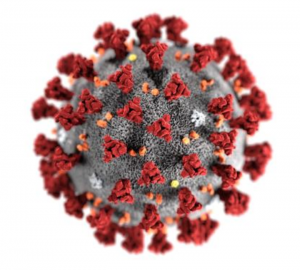The investigational drug remdesivir, developed through research conducted through the Antiviral Drug Discovery and Development Center, or AD3C, and centered at the University of Alabama at Birmingham, is being used to treat select infected patients in the United States and in China who have been affected by the outbreak of novel coronavirus (2019-nCoV).

UAB was awarded a $37.5 million, five-year U19 grant from the National Institute of Allergy and Infectious Diseases Centers of Excellence for Translational Research to study and develop treatment for high-priority emerging infections. Work has been taking place in earnest to develop drugs for emerging influenza, flaviviruses (dengue, West Nile virus and Zika), coronaviruses that cause SARS and MERS, and alphaviruses such as Venezuelan equine encephalitis virus and chikungunya. The grant is a multi-institutional collaboration to accelerate drug discovery for these emerging infections and is a public-private partnership between academic institutions and Gilead Sciences.
Remdesivir, developed to treat the coronavirus causing MERS, was found to have significant activity against the 2019-nCoV strain when the outbreak began in the Chinese city of Wuhan. Importantly, remdesivir had demonstrated efficacy in treating other medically important coronaviruses MERS and SARS in cell culture and animal models. Based on the compassionate plea requests of treating physicians in the United States, Gilead Sciences released remdesivir for use in a few patients, although the drug has not yet been tested for safety or efficacy in these diseases. “The release of remdesivir for safety and efficacy studies is a major accomplishment for the AD3C – namely the U19 grant – as it shows significant and swift advance of antiviral drugs to help treat and respond to emerging infectious disease outbreaks on an international scale and, importantly, to anticipate the introduction of these infections in the United States,” said Richard Whitley, M.D., Distinguished Professor at UAB and principal investigator of the U19 grant.
Read more at University of Alabama at Birmingham
- Mumps: LSU reports 5 cases, College of Charleston reports 1st case in weeks
- Los Angeles reports measles outbreak, 5 people affected
- Wisconsin reports confirmed novel coronavirus case
- Belgium reports 1st novel coronavirus case
- Lassa fever: Nigeria reports another 104 confirmed cases
- Hong Kong records 3 additional local 2019-nCoV infections, China update
- Philippines reports 3rd novel coronavirus case


One thought on “Antiviral drug, Remdesivir, being used for treatment of novel coronavirus”